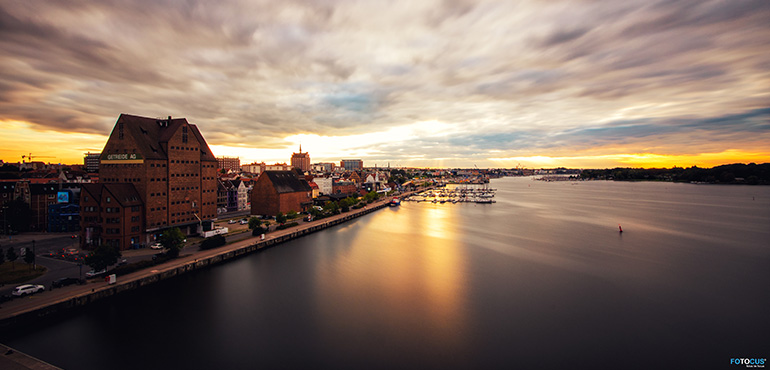
SBI – Department of Systems Biology and Bioinformatics
Faculty of Computer Science and Electrical Engineering
University of Rostock
Ulmenstrasse 69 | 18057 Rostock
Germany
+49 381 498-7571
olaf.wolkenhauer@uni-rostock.de
Work and study where others would like to spend their holidays
The old Hanseatic city, which was established in the 13th century, is located at the coast of the Baltic Sea in the north-eastern German state Mecklenburg-West Pomerania. Due to the states low population density there is lots of space for wildlife and biological reserves around the city. Numerous lakes, moors and different forest areas with rare plants and animals can be found. Along the coast sand dunes alternate with cliffs. The scenic landscape attracts many tourists and bathers in summer. Rostock also offers a great cultural heritage. Parts of town walls and gates, dating from the 14th to the 16th century, are still in place together with other buildings made of bricks. The old trading tradition is reflected in many places, such as shipyards and the port. Also the more recent history left its marks, since Rostock was part of the German Democratic Republic. The University was founded in 1419. In terms of academic history, the following list shows a selection of names associated with Mecklenburg-West Pomerania:
Tycho Brahe, the Danish astronomer and mathematician, known for his extensive studies of planets prior to the use of telescopes, spent time at the University of Rostock. In 1566 an argument over some mathematical formulae (parables) with a fellow student ended in a swords duel, where Tycho Brahe lost part of his nose.
Felix Hausdorff, best known for his work on topology and set theory, became professor at the University of Greifswald (about 80 km east of Rostock) in 1913. Like so many other outstanding scientists, the Nazi regime forced him to retire from his academic position. He decided to stay in Germany and committed suicide in 1942.
Albert Einstein and Max Planck received a honorary doctoral degree from the University of Rostock in 1919. It was the only honorary degree Einstein received in Germany. This was initiated by the physicist and philosopher Moritz Schlick.
Moritz Schlick, professor of philosophy in Rostock between 1911 and 1921, was a leading figure of the "Vienna Circle", a group of philosophers, scientists, and mathematicians that investigated scientific language and scientific methodology. The philosophical movement associated with the Circle has been called variously logical positivism, logical empiricism, scientific empiricism, neopositivism, and the unity of science movement.
Albrecht Kossel, born in Rostock, received his doctoral degree in medicine from the University of Rostock. In 1910 he received the Nobel Prize for Medicine or Physiology. Kossel's field of work was physiological chemistry, especially the chemistry of tissues and cells.
Gottlob Frege renewed logic by his masterpiece „Begriffsschrift“ (“Conceptscript”), which appeared in 1879. He was born in Wismar and died in Bad Kleinen, both towns are close to Rostock.
Ernst Mayr, evolutionary biologist and frequently referred to as the Darwin of the 20th century studied medicine at the University of Greifswald before he changed to the zoological museum in Berlin.
The two biologists Karl von Frisch and Hans Spemann worked in Rostock before they received a Nobel Prize.
